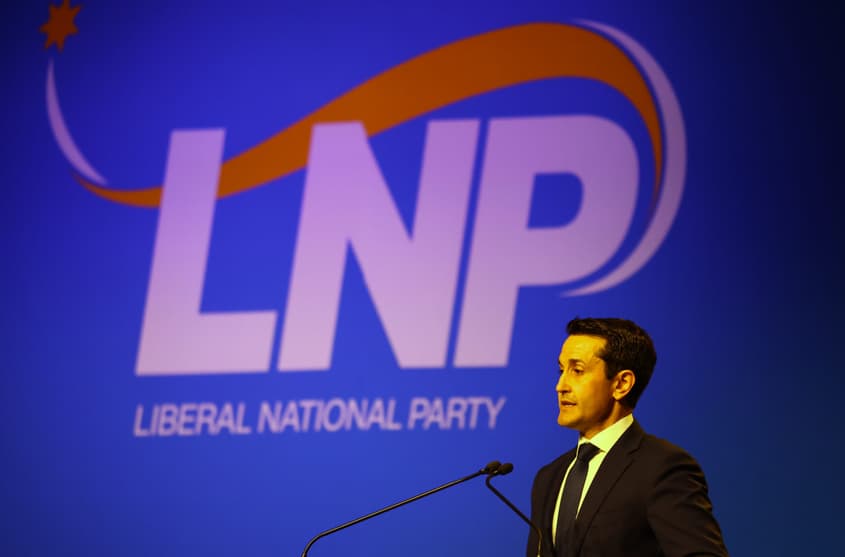Thu 25 Sep 2025 10.00

AAP Image/Jason O'Brien
Queensland experimented with fifty cent public transport fares a year ago, and they have been vindicated – with patronage up as much as 40% thanks to the change.
The price cuts were trialled by the Miles Labor Government and proved so successful that the Liberal–National Party made them permanent after winning the state election that October.
Last week, the South Australian Liberals made their biggest policy announcement of the election campaign: fifty cent fares on the metropolitan network and regional buses. If that sounds like the policy that Queensland Labor pioneered last year, it’s not a coincidence.
In politics, you’re allowed to copy someone else’s homework. In fact, it should be encouraged.
Because Australia is a federation of six states, any one brave state or territory can implement a good idea. When it works, it can be adopted by more timid governments. The states act as “laboratories of democracy”, echoing US judge Louis Brandeis who said that: “a single courageous State may, if its citizens choose, serve as a laboratory; and try novel social and economic experiments without risk to the rest of the country.”
There are political benefits too. The SA Liberals now have a public transport policy that enjoys bipartisan support in Queensland, with over a year’s worth of data that South Australian public servants could draw on.
SA Labor has been quick to criticise it, with Premier Peter Malinauskas saying the price cut would be more expensive than the Liberals say. That is because the fare cut will drive up patronage, so the system will need more buses, drivers and so on.
I doubt Liberal Opposition Leader Vincent Tarzia is upset to hear that his policy might be too successful.
Other states could also provide the answer to any funding concerns. Queensland didn’t only look at cost of living relief but also revenue opportunities, such as an increase in in coal royalties. South Australia could do the same by increasing royalties on mining, oil and gas.
While other states are learning from Queensland, the state’s Liberal–National Government is rejecting drug policy lessons from other parts of the country.
The Australian Capital Territory has led on this issue, adopting pill testing at music festivals in 2018 and a facility for fixed-location pill testing in the city four years later. The results speak for themselves; in its first six months of the pill testing facility’s operations, dozens of clients disposed of their samples on site and many more reported they were unlikely to use the drugs after having them tested. The service also puts out alerts when unexpected substances are found – such as poorly-understood synthetic drugs or one drug being sold as another (which can increase the risk of overdose).
Buoyed by the ACT’s results, NSW is trialling pill testings at music festivals and the previous Labor Government in Queensland set up a standing pill testing service.
But the new Liberal–National Government is walking that back, changing the laws to make pill testing illegal in Queensland. They have refused to hold a parliamentary inquiry or meet with drug harm minimisation groups to discuss the evidence. Liberal–National Health Minister Tim Nicholls actually said that “the Labor Party backed drug dealers.”
Fearmongering might work if Queensland had been the first place in the country to adopt pill testing. But there are years of data from the ACT proving that pill testing helps a wide range of drug users, often leads them to throw out their drugs, and gives them better information about what dealers are actually selling – and its quality.
The Queensland Government’s backsliding is unusual. More common is for a good idea to spread. Look at voluntary assisted dying, which went from illegal everywhere in 2017 to legislated in the ACT and every state six years later. Or laws clarifying that “stealthing” (secretly removing a condom during sex) is a form of sexual assault, which were adopted by the ACT, NSW, Victoria and Tasmania in the space of a year, with other jurisdictions following.
Other good ideas waiting to be copied are South Australia’s truth in political advertising laws; Queensland’s strict requirements that ministers, shadow ministers and their chiefs of staff disclose lobbyist meetings; Victoria’s Treaty process with Aboriginal people; the ACT’s ban on outdoor cats; and Western Australia’s ban on poker machines in pubs and clubs.
When an idea sweeps through politics, we say its time has come. But even better than an idea whose time has come is an idea that is already implemented and working somewhere else. The SA Liberals have started strong by adopting fifty cent public transport fares, just one of dozens of successful experiments from across the Australian federation.
Bill Browne is the director of the democracy & accountability program at the Australia Institute.
